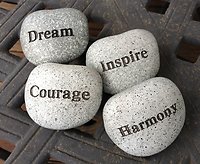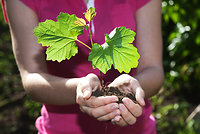WELCOME TO MY OCCASIONAL BLOG! Please scroll down to read latest pages
GETTING THE MOST FROM THERAPY
Have you ever thought about therapy or counselling? Now that’s a scary question isn’t it?
Lots of people have thought about it. Lots of people have done it and found it really, really helpful. So if you are still thinking about it here are a few tips and thoughts to help you make up your mind and help you get the most of your session.
So let’s bust some myths about therapy.
1. It’s for people with serious mental health problems
False. People who don’t have behavioural or mental health problems have therapy to help improve their quality of life, deal with stress and develop better relationships.
2.I need medication to help me get better
False. Medication has its place but it is rarely the whole answer. If you need medication to treat your problems you definitely need therapy as well!
Medication can often help you utilise therapy better. The real value of talking about your problems is that you gain insight and understanding of what went wrong and finding ways of dealing with the problems
3.I can’t afford it/haven’t got time
Therapy is a serious commitment of both money and time. Aside from the financial cost, you are also going to invest your time and effort to complete the therapy and gain the real benefits. It is often an investment that will last a lifetime.
So if you have decided to invest in therapy how do you get the most out of it?
1.
Arrive early.
Most sessions last for about 50 minutes. Psychotherapists call it ‘therapy hour’. It is important that you arrive on time. Preferably about 5 minutes before your appointment time. This is to give yourself a few moments to catch your breath, collect your thoughts and prepare your mind and body for the session.
2.
Let the therapy influence your life outside.
Therapy works best when you are able to apply the insights you’ve learned during the session to the rest of your week. Therapy is about much more than the time you spend with your therapist
3.
Don’t hesitate to ask.
Some clients are afraid of asking questions of their therapists because they think it’s against the rules. But the truth is, your therapist is happy to hear you asking and to explain things to you in ways you would better understand. You can ask pretty much everything you want. Your therapist won’t divulge personal information about themselves. Therapy is about you not them!
4.
Learn to do it on your own.
Whilst you come to see a therapist to seek insight and guidance, it is more than that. Therapy is more about helping you come to your own conclusions and helping you get to know yourself better. That means you will be able to manage your emotions and make decisions on your own without the therapist once treatment has ended.
5.
Complete it.
This has to be the most important thing. Sometimes it will feel you are not making progress. Sometime you will wonder what you are going to say. Don’t cut and run. Stick with it. Allow yourself to reap the benefits of therapy. And you can only do this if you give your heart and mind at it, without reservations.
6.
Enjoy!
Last but not the least – do enjoy the entire therapy. Consider it as a life changing experience that can significantly improve your life and make you a better person. Instead of feeling anxious, be excited about each session you will attend. You can participate more and get the most out of therapy when you are filled with motivation, not nervousness or fear.
DAILY TIPS FOR MINDFULNESS
SEVEN DAYS OF MINDFULNESS
1. We all dash from one place to another Today try mindful walking. Take slower breaths and slower steps. Watch your feet as you are placing them on the ground and bring your awareness to your body as it moves. Try for 5 minutes today.
2. Close your eyes and listen carefully for one minute today to all the sound around you. For one minute you have nothing else to do. Just listen
3. When you share Christmas greetings, say them with love and meaning
4. At a party, take a moment to step back from the talking and entertainment and experience the sounds that was around you as a kind of music
5. Be aware of phrases you often repeat throughout the day. Some of these may be part of a negative pattern. Be kinder to yourself
6. If you are feeling uncomfortable about an issue at home or at work,choose to address it this week. Take a deep breath and decide how you want to bring your concerns to those involved.
7. Our emotions are based on love and fear. Observe your emotions and impulses. Ask yourself "What do I fear here|?
THE HAPPINESS 'MYTH'
HOW HAPPY ARE YOU? ARE YOU WAITING FOR SOMETHING TO HAPPEN SO THAT YOU WILL BE HAPPY?
Surveys in Britain and the US show that people are no happier now than in the 1950s – despite massive economic growth. These findings say loud and clear that it really isn’t economic growth that makes us happier
People’s happiness can be permanently altered. Research shows that for many people long periods of unhappiness are followed by long periods of happiness
Many people think that if they become successful, they will automatically get happy too. Recent studies have shown this is the wrong way round: it is in fact happiness that fuels success, not success that fuels happiness.
The general conclusion from many of the studies is that your subjective well-being -- that is, feeling positive about your life, not stressed out, not depressed -- contributes to both longevity and better health among
So What Makes Us Happy?
Is there a formula—some mix of love, work, and psychological adaptation—for a good life? Probably not! But the ‘happiness industry’ does have some good tips and ideas for giving us a helping hand.
When I was training to be a CBT Therapist my tutor said ‘I don’t do happiness with clients – they do that for themselves.’ He was right too. Happiness is not something you can be taught – although you can learn to be happier; happiness is not something you ‘do’ to someone else – we are each responsible for our own state of happiness. No one can ‘make’ us feel happy!
There are however some very simple (and not so simple!) things that you can do that have been shown to lift our mood, help us think and feel more positively about life and about ourselves.
It seems that happiness is very much about everyday activities not huge one off events. How we think about happiness does have a huge impact on how we run our lives. Feeling better in the moment is not only more pleasant but is also likely to open our minds to opportunities at work, play and in our personal relationships. So making room for happiness in our lives is an important step.
So how to do it?
Here are some of the things that appear to have a positive impact on our thinking and feelings of well being.
Talk to others.
Do avoid the doom and gloom brigade though! Being with people whose company you enjoy and find uplifting and entertaining is a great way to stay positive. Mirroring positive emotions is much healthier than spending time talking about how awful life is!
Be interested in leisure activities.
Exercise in some form is well known for it’s ability to life moods and flood the body and mind with those lovely endorphins that make is fell good, positive and energized. A brisk walk on a gloomy day can be a huge lift.
Resolve conflicts effectively.
Studies have found people in a good mood are more likely to try and collaborate rather than avoid conflict and compete when they are put in a positive mood.
Do things that make you feel happy – dance, laugh, sing, cook, read a favourite book. We all have little happiness triggers.
Help others.
When in a good mood, people are more likely to display what psychologists call 'prosocial behaviour' - helping others and being generous with both time and money.
There is a lot of talk about random acts of kindness. Some people are simply freaked out if you do something kind and generous, particularly if you are a stranger! They assume you want something in return. However, a small gesture, even smiling at a stranger, will lift your mood and theirs!
There is loads of stuff written about being happier and most of it comes down to that old Abraham Lincoln quote “People are about as happy as they make up their minds to be. “
In other words how happy you are is in your own mind and in your own hands!
What going to bed with your phone really does to your brain
78% of adults in Britain look at their phone in the final hour before bed
There are no figures about how many people in the UK sleep with their phones but it is estimated to be around 60-70%
Two hours of exposure to the blue screen device near to bedtime can supress melatonin by 22% and reduce sleep. It also increases the production of the “stress” hormone cortisol which keeps us awake
Having your phone nearby means you are more likely to check texts etc in the middle of the night causing you to lose sleep.
Having your phone next to you at night increases the risk of heart disease and memory problem
If you only get 5 – 6 hours sleep your brain can’t do it’s necessary housekeeping this can lead to negative effects on memory and cognitive performance.
Having your phone with you seems to cause sleep disruption. We sleep in 90 minute cycles with a delicate balance between the different types of sleep. If these cycles are disrupted we are not getting the right kind of sleep.
Most people who take their phones to bed use them as an alarm. Buy an alarm clock and leave your phone outside the bedroom
SEVEN FRIENDS TO KEEP FOREVER
1. Those who open up their hearts and tell you the truth even if it hurts
2. Those who come to your rescue during a crisis
3. Those who are mature enough to respect your privacy
4. Those who inspire and encourage you to be the best you can be
5. Those who have proven over time to be dependable and reliable
6. Those who understand your baggage and are willing to help you unpack
7. Those who give to you as equally as they take from you
TRYING IT ON FOR SIZE
I often have clients say ‘I couldn’t possibly do that it’s too difficult’ or ‘That decision is just too hard’. How often have you heard yourself say something similar?
Sometimes we find decisions are easy and obvious. The result of our decision is clear and that particular course of action takes us where we want to be. Sometimes there are several options and we become so afraid of making the ‘wrong’ decision that we don’t do anything at all or wait until the last possible moment and leap in and hope for the best!
We are often afraid to make decision because we have always been told to ‘be careful – you might make the wrong decision’. We panic that we might make a mistake. Often the more choice we have the more paralysed we become. Our internal critic – that little voice in your head that always tells you to be careful, not to get it wrong – really starts yelling at you. Making any decision becomes almost impossible.
Some years ago a coaching friend of my mine suggested ‘trying it on for size’. It’s a strategy I’ve used with myself and with clients many times over and it really works.
Let’s say you want to clear some clutter from your home but you are afraid you will make a mistake by getting rid of the ‘wrong things’
Here’s how to do it. Make your decision – decide what you want to clear out.
Right now it’s just in your head. See how it feels to have made that decision. How would it be to be without all that clutter in your home or office? Imagine the space, the clutter free environment. Sleep on the decision.
Next day take one step towards implementing your decision. Put your clutter in a box or a bag and put it in the garage, the shed, the boot of your car.
Remember you are just trying it on for size. You can change your mind at any time.
Once again spend the day trying on your decision – how does it feel now you have made some progress towards it? How is to be living without those items? How is it to have less clutter around you?
On day 3 review how it’s felt to be trying on that decision – chances are you will feel more comfortable with it and be able to go ahead and take your stuff to the charity shop.
It is really about moving away from the idea of right or wrong decisions. Whatever your decision it will offer new opportunities, it will offer learning. Maybe it will offer you a new challenge. The real key is deciding that whatever happens – even if the result isn’t quite what you had anticipated – you can handle it and grasp the opportunity.
Trying it on for size works when you are having trouble making decision about almost anything. It helps you step away from the concept of MUST and allows you try on how that decision would feel. It’s a powerful tool. Try it out next time you find a decision hard to make.
To quote Susan Jeffers say to yourself ‘SO WHAT! I’LL HANDLE IT!’
Further reading “Feel the Fear & Do it Anyway by Susan Jeffers
The Joy of Gardening
If you watched the TV coverage of the Chelsea flower Show recently you couldn’t fail to notice the connection between gardening and mental health.
Here are some of the reasons why it’s so good for us all, whatever our age or ability.
1.It is great exercise. You can boost your fitness levels in the fresh air. Half an hour of weeding can burn up to 150 calories!
2.It incorporates mindfulness
You might feel too busy for mindfulness, but research shows it can have a huge impact on your stress levels, helping to stave off anxiety, slash depression risk.
3.It boosts brain health
Gardening exercises your mind as well as your body. It utilises a number of our brain functions and includes learning, problem solving and sensory awareness, keeping our minds active. A real bonus as we get older.
4.It lifts your mood
Sitting out in the garden on a sunny day taking in the sights, sounds of smells of the garden is an excellent way to relax.
Soil is *actually* an antidepressant
Soil has been found to have similar effects on the brain as antidepressants to lift mood.
5.It connects us with nature
The problem with today’s culture is that we are always “on”. Phones, text, email all the various social media mean we can lose touch with nature and the outdoors. Time in the garden can reap big rewards. Interacting with the natural world has been show to improve memory and concentration by 20%
Fitter, healthier more alert – what’s not to love about gardening? Also if you feel inclined you may even be growing some of your own food!
If you or someone you know would benefit from therapeutic gardening, the charity Thrive uses gardening to help people with a range of mental health problems, including soldiers experiencing post-traumatic stress.
•
Thrive A national charity whose aim is to enable positive change in the lives of disabled and disadvantaged people through the use of gardening (020 7720 2212)
WORLD KINDNESS DAY
13 November is World Kindness Day. Start it by being kinder to yourself
Talk to yourself the way you would talk to a good friend - with kind caring words rather than judgemental ones
When you get good feedback or a compliment write it down in a journal or diary. It's easy to forget the good stuff
Remind yourself we are all imperfect
Listen to yourself. It's fine to say no to others sometimes
Be yourself
Trust yourself
Love yourself
Be Kind to others
Send a kind text to someone you know. This could be a thank you, well wish, compliment, remembrance of a kind deed or anything kind!
Say good morning to everyone on your way into work and good evening on your way home
Eat lunch with someone new
Offer to buy a drink or some food for a homeless person
Go through your possessions and donate items you no longer use to charity
Hold the door open for those behind you
“Carry out a random act of kindness, with no expectation of reward, safe in the knowledge that one day someone might do the same for you.”
The season of……..Gratitude
Most of the blogs and news articles at the moment are about how stressful Christmas is. well we make it that way ourselves!
There is a human tendency to remember the bad things – negative experiences create deeper neural pathways in the brain making it easier to remember the negative. We have to work hard at remembering the positives. Gratitude is also about being grateful for things in the here and now.
According to psychologists, gratitude is something we could all do with cultivating. Feeling thankful and expressing thanks and gratitude makes you happier and healthier. Both physically and mentally. And like most things that are good for us it’s something that’s best done on a regular basis. So instead of thinking of stress let's think about how good thins are and how good this year has been.
Write Your Happiness List
Gratitude is not just directed at others. Why not take a few minutes each day to jot down the things that make you thankful. I often suggest keeping a gratitude diary – writing down each evening 3 things that have left you feeling happy today. Simple things that we so often forget - that smile from a stranger – enjoying a cup of coffee with a work colleague – an unexpected text or call from a friend. These things tend to get lost in the rush of the day and yet they are things to be grateful for.
Research shows that once we begin the process of gratitude we begin to feel better about ourselves, have more energy and feel more alert. And those who write their gratitude list seem to sleep better, exercise more and have a general contentment that may help counteract stress. Interestingly others also begin to notice a sense of contentedness within us. The differences are noticed by others and the ‘journalers’ are seen as more helpful.
Wow – what a load of benefits from the simple act of being grateful
So back to my invitation to take a look back over the past year. What are the small things that you may have forgotten that made you smile lifted your spirits when you were down one day? Who were the people who brought joy or compassion into your life, even for a few short moments? Remember them and be grateful.
How to Live a Life of Gratitude
The thing is, simple acts of gratitude don’t cost you much
•Gratitude session/journal. Take 2-3 minutes each day to give thanks, to whoever or whatever you’re grateful for. You don’t have to do anything, other than close your eyes and silently give thanks. Better still start that gratitude journal. It really does make a huge difference
•Say thank you. When someone does something nice for you, however small, try to remember to say thank you. And really mean it.
•Call to say thanks. Sometimes you might think about something nice that someone did for you. When you do, pick up the phone and call the person, just to say thanks Even better is telling them in person, if you happen to see them. Almost as good is a thank-you email — keep it short and sweet.
Whatever Christmas means to you, how ever you acknowledge it or celebrate it may it bring you joy.
"There comes a time when autumn asks, “What have you been doing all summer?”
Are you suffering Late Summer blues?
Autumn is coming. Well it feels as though it is already here!
It’s usually January when we start to feel low. The post Christmas slump. But it now seems that many of us are suffering from the September blues. Particularly this year when the summer hasn’t been great – again. Holidays are pretty much over. The kids are back to school very soon and there are lots of long dreary evenings ahead with no real break now until Christmas comes around again. Sadly a recent survey found that of all the workers around the world we in the UK a particularly unhappy with our jobs. Two thirds reported they dread Mondays! How sad is that? No wonder so many people feel down as summer draws to a close.
But is there anything we do to brighten our days? Of course there is!
Here are a few tips to beat those “Back to September Blues”:
Upload or print out your favourite summer photos. Nothing brightens your day more than a screensaver of a great holiday view or day out.
A few other blues lifters are:
Say farewell to summer with some celebration or acknowledgement! Plan something for the upcoming Bank Holiday. A walk, perhaps a barbeque ot just getting together with friends regardless of the weather.
Reflect on the things that you did manage to do this summer. Remember the sunny days you sat in the garden, went for a walk or bike ride. Those lovely meals you ate from fresh seasonal fruit and veg. Perhaps a day at the beach or a picnic. All lovely summer memories.
Now make a list of what you have to look forward to this autumn.
Focus on both your work life and life in general in autumn. I did this and realised that despite my sadness that summer is over, I actually remembered how much I do love Autumn. It’s a great season. For instance, the wonderful colours the Autumn foliage; if you like fashion, you can’t deny that Autumn is the season for new clothes! It’s also a wonderful time to start new projects both at home and at work. Maybe a new hobby to fill the longer nights. If you started swimming on holiday why not make it a regular part of your routine and gain the benefits from some regular exercise.
Plan to see the new movies that always hit the screens in Autumn. Movie makers always save the best for this time of year!
And Autumn is a fabulous time for walks and bike rides. Make some plans and the chill of Autumn will feel less of a problem.
Love to learn? Well now’s the time to start! From one day workshops to full courses all start now. It can be work related or anything. Autumn is traditionally the time to begin new learning. I suppose it’s how we have always structured our school terms. But the new season brings with it an opportunity to learn something new and exciting and in the process meet and make new friends. How about a new language ready for next summer?
Pay attention and notice what happens as you create your list of Autumn opportunities. I’ve been working on my list for a couple of days and have noticed a marked difference in my energy. I’m now actually looking forward to September! I can almost taste it….and it’s okay!
WORKING FROM HOME
Working from home is likely to be a whole new experience for many of us. In these uncertain times it can be just one more change to deal with!
Here are a few tips that may help you actually enjoy the experience!
1. Maintain Regular Hours. Set a schedule, and stick to it...most of the time. ... just like you would at work. Routine is an important way to help us feel safe
2. . Create a Morning Routine. If you normally go to the gym do a home workout. If you normally have a coffee/tea before you can even think about work that's what you need to do. Get up at a regular time, shower, have breakfast, prepare your lunch - just the same as if you were going out to work.
3. Set Ground Rules With the People in Your Space. Children particularly need to understand that at certain times you will be unavailable because you are working. Children generally don't quite get the concept of "working from home". They think work means leaving the house!
4. Schedule Breaks. Coffee breaks, lunch breaks, social chat breaks - just the same as if you were at work
5.Leave Home if at all possible. Even a walk round your garden takes you away from "work mode"
6. Don’t Work in Your PJs I know — this is one reason why people love working from home. If you enjoy working in your PJs, then you are killing your productivity. “Dress for success” isn’t just a corporate catchphrase; it really matters when you work from home.
7. Keep a Dedicated work Space - that may be a corner of a room or if you are very lucky a designated room. Whatever it is make sure you can walk away from the work space at the end of the and signify that you are back in your own time. When you are working from home it can be invasive in your personal life. This is because if you are always home and near your work, then your work creeps into your home life.
STAYING CALM IN TIME OF COVID-19
This COVID-19 crisis has radically changed our lives. Just a few months ago, we had no idea our 'world' would be confined to our homes!
This crisis is a powerful reminder of how important freedom is - and how much we need human connection!
Remember you are not alone. Because what is DIFFERENT here is that everyone is impacted! Your neighbour, mom, boss and friends as well as your counterparts around the world are all going through something similar.
So, it's important to remember:
Be patient and tough; one day this pain will be useful to you.” – Ovid
This is the challenge each of us must rise to! If we're going to be stuck at home, we may as well make the most of it.
Here Are some Things You Can do to Make Your Life Better while Physically Isolated:
1) Create a Healthy, Supportive Routine
When we feel powerless or helpless (as so many of us do at the moment), one EXTREMELY easy thing to do is to create a routine or schedule.
While we're all stuck in anxiously waiting at home, it's easy to lose our sense of time. Days can begin to blend into each other. A routine can give us an anchor and greater sense of control over our lives. And if you have children, creating a routine is especially important to give them a sense of normality.
This routine or schedule can be as simple its important to have a egular routine
Be sure to include food preparation, social time, exercise and outdoor time and some learning or creativity so you get some benefit from this challenging time.
Please note I have not included watching TV news or social media updates. Do avoid these if at all possible. Only check in with a reliable news source once a day
It's also important to recognize weekends because it's too easy for weeks to blur together. So, make a looser schedule for your weekends. For example, you could include:
•
Sleeping in/later bedtime
•
Brunch (in the garden)
•
Movie/Netflix night
•
A virtual happy hour with friends or colleagues
•
A Zoom quiz with friends
•
A larger project, perhaps some art, craft, gardening or home redecoration.
So, create a routine for a sense of control and mastery over your environment and life circumstances. Reclaim what power you can over your own life, because with all this uncertainty it's important for you - and especially important for children - to have predictability.
2) Build Your Physical Strength, Fitness Levels or Flexibility!
Building your physical strength is powerful and health-boosting! Not only is physical strength and flexibility life-affirming and good for our health, but feeling more physically powerful actually helps us feel more empowered and less helpless in life too!
So add some physical activity into your schedule - as little as 15 minutes daily. Maybe by the end of this you'll be fitter or even be able to do 10 (or 100!) press-ups!
There are many options to boost your physical strength and health. Here are some ideas:
•
Take up a yoga practice - excellent for strength-building, flexibility - and calm! There are lots of online options. Here is one with everything from 10 minutes for beginners to an advanced practice. Joe Wicks YouTube has great free exercise classes for kids and adults
•
Learn do a press-up or push-up. Then see if you can get to 10 (or more - depending on where you start)!
There are so many online fitness classes on Youtube - for beginners, experts - with equipment and also with no equipment whatsoever.
REMEMBER: Being stronger = FEELING stronger and more in control! And building your PHYSICAL strength or fitness = REDUCED feelings of helplessness!
AUTUMN BLOG

Autumn is creeping upon us with the possibility of longer nights, cosy fires, crisp leaves underfoot.
Rather than seeing it as a time of closing down, I like to look at Autumn as an opportunity for renewal.
It’s the time to curl up with that book that you meant to read all summer. Perhaps it’s time to review your summer wardrobe before you pack it away. What did you wear most? What didn’t you wear at all? What needs to go? What needs to stay? What needs some attention before you put it away? Repair, dry clean, wash now and your clothes will be ready to wear again in the Spring.
It’s also a really good time to start keeping a journal. A journal is not to be confused with a diary. A journal is where you right down your thoughts, feelings, hopes, dreams. It’s a place where you can be totally truthful- it’s written for you and no one else. You can use it to record inspirational quotations, words of wisdom that you come across in your daily life. Use it to store motivating articles from magazines.
Journaling is a way of helping you recognise your own feelings. We all have thoughts floating around in our mind in some sort of a fog. Writing them down helps you organise them, and recognise them for what they are – just thoughts. No need to act on them – unless you choose to.
Journaling is a very private affair. No need to share the contents with anyone except yourself. Re-reading your jottings can be an enlightening experience. You learn what strengths you have, how you deal with difficult situations. It is a great way to improve your self awareness. It’s also a wonderful way to record the joy and happiness you have in your life. You can look back over weeks and months and realise there is so much in life to appreciate and enjoy.
Treat yourself to a lovely hard backed note book that expresses who you are. Start journaling. No need to do it every day – just when the mood takes you. You will be amazed at how valuable it can be in making sense of the busy lives we lead.
A few tips to help you get started and keep going!
1. Be Complete Date everything! When you look back it’s good to remember where you started
2. Vary Your Entries
Make sure you write your feelings and thoughts about the things going on in your life. A Few facts are good – feelings and thoughts are better
3. Ask Yourself Questions:
When you start your journal ask yourself a few questions:
• What would you like to remember about yourself?
• What has the life done for you?
• What would you like to tell your children or grandchildren about yourself?
4. Don't Give Up!
No matter how much time has passed since your last entry don't be discouraged, what's important is that you write in your journal today!
5. Decide the type of journal that you want to keep. Examples are:
• Daily Journal - Writing a daily journal is one way to balance your emotional ups and downs. It is also an excellent way to communicate with your inner self.
• Gratitude Journal - Express your joy and happiness by keeping a gratitude journal. Make a note of everything, no matter how small or how big, that gives you joy or brings you happiness. It is always beneficial to focus on the positives, but it is especially healing during the bumpy times to be able to turn to a book filled with positivity and gratitude in your own handwriting.
• Travel Log - Jotting down your vacation highlights as you experience new places and different cultures will keep these special adventures alive forever.
• Memories Journal - Writing down stories about your childhood makes for a good keepsake to pass down to your children, grandchildren, and to be cherished by generations to come. While you're at it, write down the stories told to you by your parents and grandparents. So many stories, so little time. Write them down before they disappear forever.
Thought for the month:
Do what makes you happy
Be with who makes you smile
Laugh as much as you breathe
Love as long as you live
.











